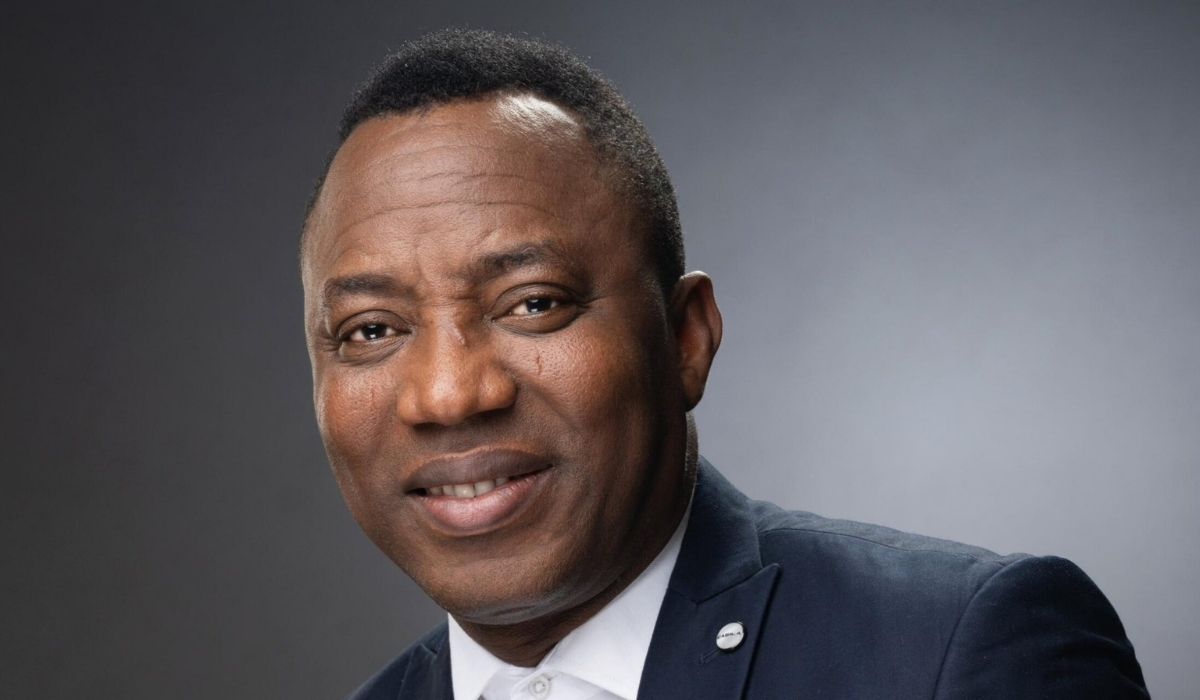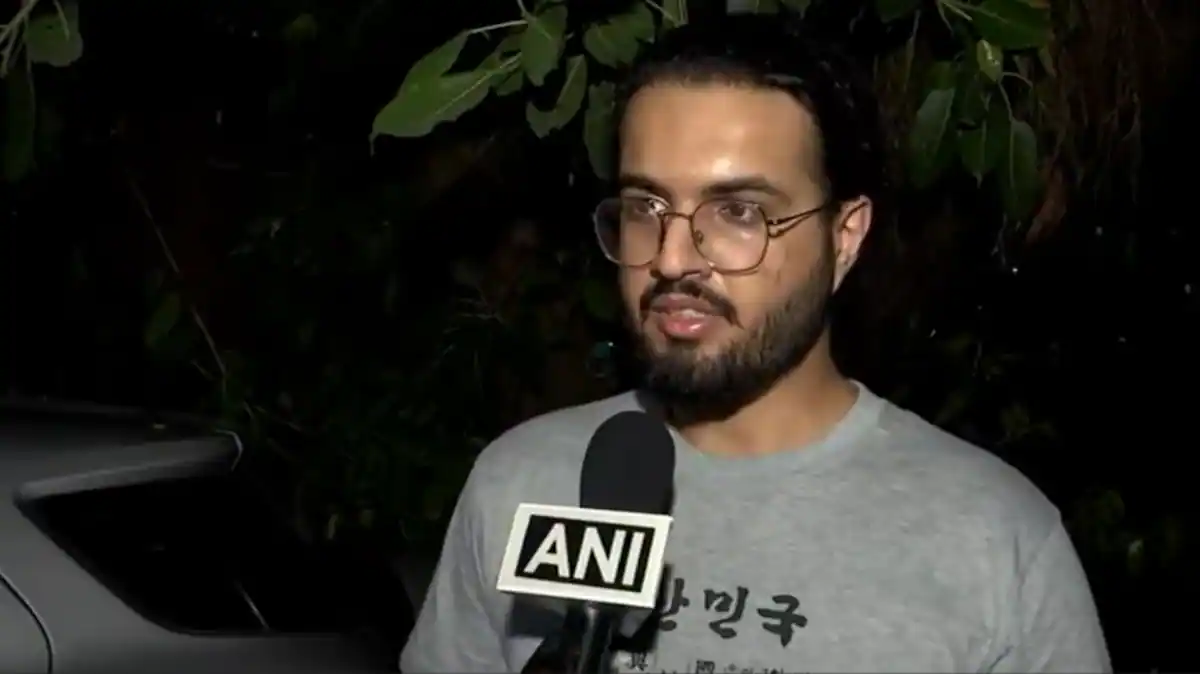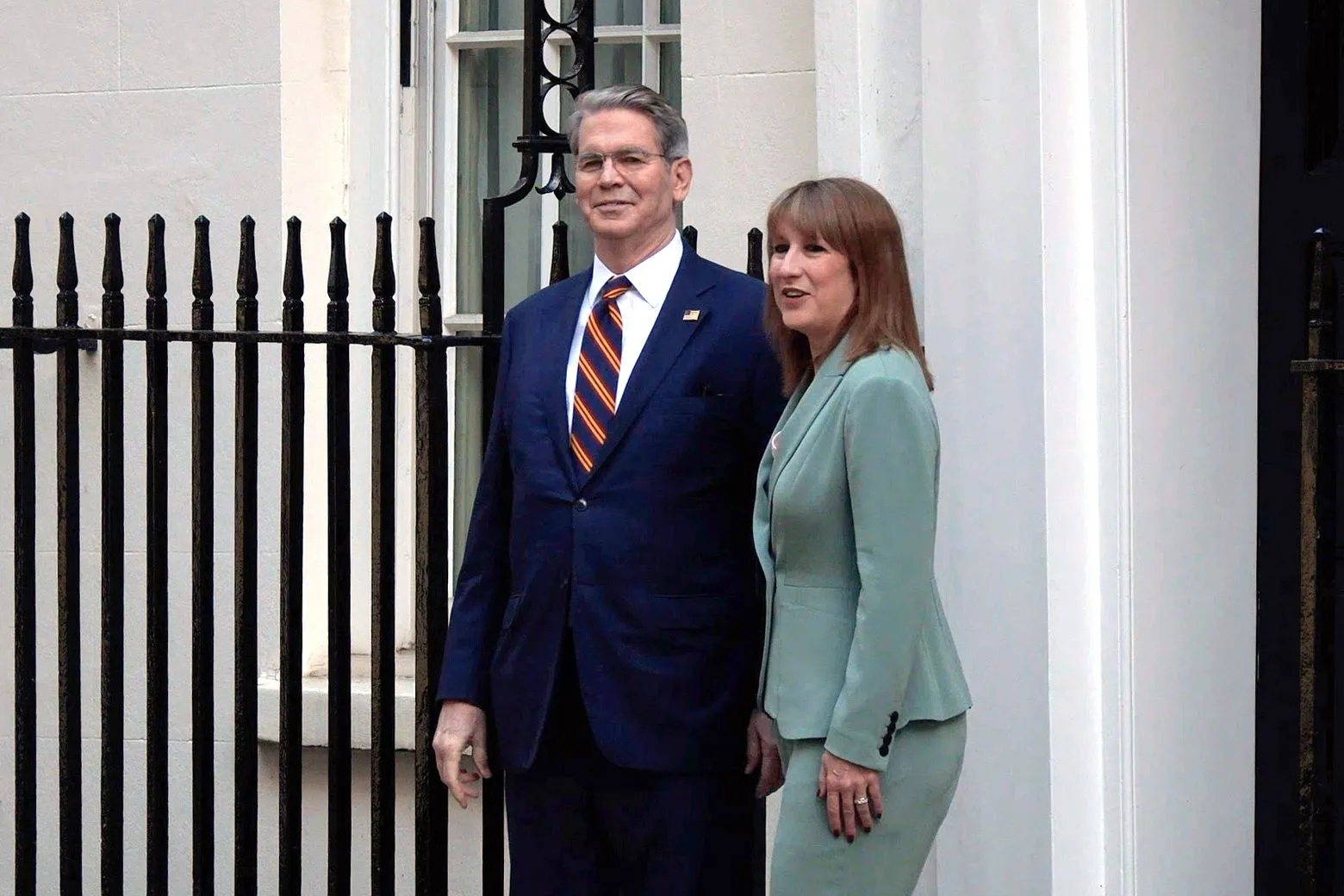By Israel Arogbonlo and Sikiru Obarayese
Copyright tribuneonlineng

Nigerian activist and former presidential candidate, Omoyele Sowore, recently made waves on social media after criticising President Bola Ahmed Tinubu’s remarks during his state visit to Brazil.
This was on the heels of Tinubu’s claim that corruption no longer exists in Nigeria’s currency market under his administration.
President Tinubu had, during a meeting with ministers from both countries and members of the Brazil Business Group, described Nigeria’s economic landscape as a “vast, untapped market full of opportunities for Brazilian companies.”
ALSO READ: You’re lucky Tinubu respects rule of law, Wike knocks Sowore
“Initially painful, but today the result is blossoming. It’s getting clearer to the people. We have more money for the economy, and no more corruption.”
To demonstrate the new climate of transparency, he pointed to the Central Bank of Nigeria, stating, “You don’t have to know him before getting the foreign exchange you need. The speculators are out. In our currency market, the door is open for businesses,” the President said.
Reacting, Sowore wrote in a now-viral post: “THIS CRIMINAL @ OFFICIAL PBAT ACTUALLY WENT TO BRAZIL TO STATE THAT THERE IS NO MORE CORRUPTION UNDER HIS REGIME IN NIGERIA. WHAT AUDACITY TO LIE SHAMELESSLY!” The post accused Tinubu of lying about corruption and labelled him a “criminal,” sparking widespread debate on social media and protests from some supporters of the president.
Meanwhile, the Department of State Services (DSS) labelled the post as defamatory, false, and capable of inciting public disorder.
The DSS, in a letter to X Corp. (controlling company for X social media platform), demanded removal of Sowore’s post, citing national security risks. However, with Sowore’s refusal to retract it—stating he would not do so even until the end of Tinubu’s term in 2027— the DSS issued a one-week ultimatum on September 8.
And subsequently, specifically on September 17, the DSS filed a five-count criminal charge against Sowore, X Corp., and Meta Inc. (Facebook’s parent company) at the Federal High Court in Abuja. However, Sowore has countersued, seeking to protect his right to free speech and prevent the platforms from deleting the post.
With the understanding that the case is currently before a competent court of law, Tribune Online, in this article, examines whether Sowore’s comment constitutes a punishable offense under the Nigerian Constitution, based on relevant legal provisions, precedents, and expert analyses.
What the Constitution Says
The Nigerian Constitution guarantees freedom of expression under Section 39, which protects the right to express opinions, including political criticism. However, this right isn’t absolute. Section 45 of the Constitution allows limitations on free speech if it threatens public order, national security, or infringes on the rights of others.
The Constitution doesn’t directly criminalise calling someone a “criminal.” But violations can occur under subsidiary laws like the Criminal Code and the Cybercrimes Act, which restrict speech in certain circumstances. On the other hand, if a law contradicts the Constitution’s protection of free speech, it could be struck down.
Statutory Laws in Play
Although the Constitution allows free speech, laws like the Criminal Code Act and Cybercrimes (Prohibition, Prevention, etc.) Amendment Act (2024) restrict certain types of speech. These laws may make Sowore’s comment punishable if the court determines it to be harmful upon proven by the plaintiff.
The Cybercrimes Act was amended in 2024 to address issues like “fake news” and “offensive content” online, but critics argue it could be used to limit free expression. The DSS also referenced the Terrorism (Prevention and Prohibition) Act 2022, suggesting the post might be seen as “domestic terrorism” because it challenges the authority of the state. However, this interpretation isn’t directly related to the charges being pressed.
Legal Precedents
Nigerian Courts have repeatedly prioritised free speech, especially for political criticism, over criminal defamation. While the charges against Sowore is not novel, it’s worthy of note that the DSS is pressing charges against Sowore on behalf of the federal government for the alleged defamatory statement targeting Tinubu.
Arthur Nwankwo v. State (1985, Court of Appeal)
In this case, the court ruled that criminal defamation of public officials is unconstitutional under the freedom of expression clause (similar to Section 39). It stated: “In a democratic society, fair criticism of government or public officers is protected… The essence of democracy is freedom of speech.” Sowore cited this in his response to the DSS, arguing that the agency cannot act as a “proxy” for Tinubu in defamation matters.
Other Rulings: In cases like Edet v. The State and Femi Falana’s advocacy, courts have struck down sedition and criminal defamation laws as relics of colonial-era repression, incompatible with democracy.
Historical Context: The Gani Fawehinmi’s Case
Historically, figures like Gani Fawehinmi once called Tinubu a “criminal” in the 1990s over alleged corruption without prosecution succeeding, reinforcing that such rhetoric is arguably activism, not crime.
For anyone to understand Fawehinmi’s case, there is a need to look into Nigeria’s political landscape at the time. The 1990s were one of the turbulent decades in the Nigerian political history. Military rule under General Sani Abacha (1993–1998) was marked by repression, censorship, and crackdowns on dissent. Activists like Fawehinmi, who founded the National Conscience Party (NCP), challenged the regime through writings, lawsuits, and public campaigns. After Abacha’s death in 1998, Nigeria transitioned to democracy in 1999, with the Fourth Republic established under the 1999 Constitution.
With democracy now in force, Tinubu became governor of Lagos State in 1999, but his earlier political and business dealings drew scrutiny.
Fawehinmi’s accusations against Tinubu centred on alleged financial impropriety and connections to illicit activities during the military era. For example, in publications and interviews around 1998–1999, Fawehinmi claimed Tinubu’s wealth and political rise were tied to corruption, including alleged links to drug trafficking networks—a serious allegation. These claims were part of Fawehinmi’s broader campaign to expose corruption among Nigeria’s political elite, whom he often called “criminals” in his fiery rhetoric.
Experts weigh in
A legal liminary and human rights lawyer, Femi Falana, SAN, argued that the provisions in the Cybercrimes Act regarding “cyberstalking” and “offensive messages” should be limited to respect constitutional rights. He pointed out that the police and security agencies can’t prosecute people for insults if they violate free speech.
“Police and security agencies lack power to prosecute for ‘insult’ or ‘criminal intimidation’ if it violates free speech,” he stated.
Another constitutional lawyer, Mike Ozekhome (SAN), while sharing his perspectives, noted that defamation should be a civil, not criminal, matter in modern democracies.
“The Constitution guarantees free speech under Section 39, and calling a public official a ‘criminal’ in political discourse is protected unless it directly incites violence with clear evidence. The DSS’s charges are a dangerous precedent, undermining democracy. Section 45’s limits must be narrowly construed, and the DSS has not shown proportionality,” he wrote in a post via his verified X handle.
Inibehe Effiong, a human rights lawyer and activist, agreed that Sowore’s statement, while strong, falls within the bounds of political activism.
Effiong pointed out that the Cybercrimes Act is being misused in this case, which he believes violates the Constitution. He argued that the case should be dismissed, given that the law doesn’t support prosecuting people for political opinions.
“Sowore’s statement is hyperbolic but within the realm of political activism. The Cybercrimes Act’s vague provisions are being weaponised, contrary to Section 1(1) of the Constitution. Courts have consistently protected such speech, and this case should be dismissed,” Inibehe asserted.



